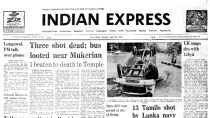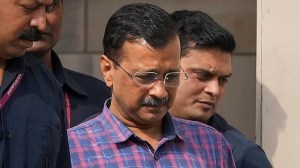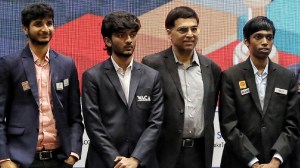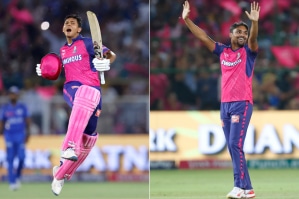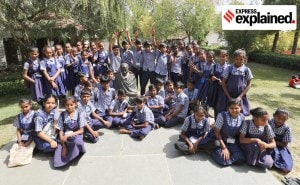- India
- International
The US report on religious freedom in India calls for reflection
While the government was right at the diplomatic level to reject the report, the criticism ought to be seen as an opportunity to reflect on the state of freedom of religion in India.
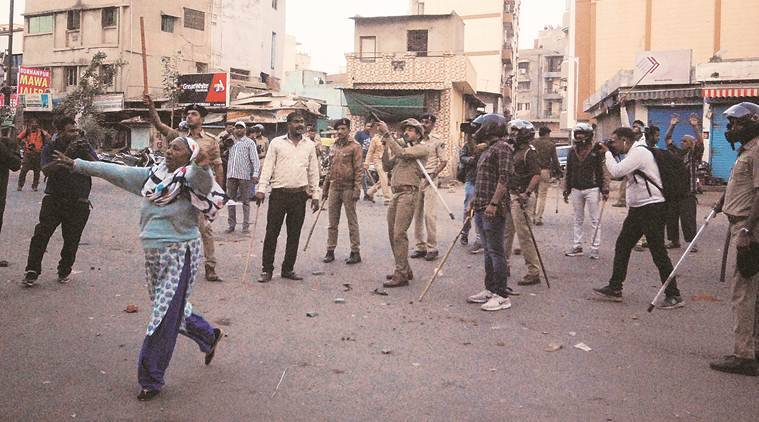 Protests against CAA at Shah e Alam area in Ahmedabad in December 2019. (File)
Protests against CAA at Shah e Alam area in Ahmedabad in December 2019. (File)
The United States Commission on International Religious Freedom (USCIRF) in its 2020 report has categorised India as a Country of Particular Concern (CPC). India had got this shameful tag once before — after the 2002 Gujarat carnage.
The USCSIR is an independent, bipartisan US federal government commission established in 1998 under the International Religious Freedom Act. It monitors freedom of religion across the world except in the US. Of the nine commissioners, three are appointed by the US president, two by the leader of US president’s party and four by the leader of Opposition in the Congress. USCIRF reports are globally respected.
Intellectuals who express concerns about the atmosphere of hate created by TV anchors on behalf of selfish politicians and regressive rightist ideology have been ridiculed in India. The judiciary too has not shown the requisite eagerness to stand up to the challenge. It did not consider the newly enacted Citizenship Amendment Act (CAA), the abrogation of the special status of Jammu and Kashmir or the violation of civil liberties, post abrogation, important enough to be heard. In fact, the Supreme Court supervised the exclusionary and divisive NRC process in Assam.
For true nationalists, international prestige of the country is more important than winning elections. For them, it is painful to see our great country being clubbed together with Iran, Saudi Arabia, Pakistan, North Korea, Syria, Myanmar and China on the question of religious freedom. They were already upset with the tweets from West Asia that reminded India of its civilisational commitment to tolerance. This author does not want any Muslim country to speak on behalf of the Indian Muslims: Muslims have full faith in the country’s Constitution and institutions.
For years, India has been a Country of Special Concern (CSC), but now the ranking has further deteriorated. Ideally, India should be on par with the Scandinavian countries, the US and Canada. Today, Afghanistan, Sudan, Indonesia and Egypt have a higher ranking than us.

Who are the CPC countries? These are countries where the government engages in or tolerates “particularly severe” violations of religious freedom. Under the US’s International Religious Freedom Act, severe violations of religious freedom indicate “systematic, on-going and egregious violations including torture, degrading treatment, prolonged detention without charges and other flagrant denial of right to life, liberty or the security of persons”.
The report observes that the situation in “India took a sharp downward turn in 2019. The national government used its strengthened parliamentary majority to institute nation-level policies violating religious freedom across India, especially Muslims”. It took note of the discriminatory CAA provisions and rejected the government’s claim that this law has nothing to do with Indian Muslims. As many as three United Nations Special Rapporteurs had warned that the NRC would result in “statelessness, deportation, or prolonged detention” (of Indian Muslims), but they were ignored.
The report also took note of the UP chief minister’s call for “revenge” against anti-CAA protesters and his remark that the protesters should be fed “bullets not biryani”. It also mentioned the Babri Masjid verdict as one encouraging a “culture of impunity” for those who demolish religious places and harass minorities. The way the Sabarimala review was accepted, contentious religious issues of other communities clubbed together with it and the Babri review was not given even an open court hearing have not gone well with independent observers. The several lynching incidents in the name of cow slaughter have also been noted. In a clear cut indictment, the report said the national and various state governments allowed nationwide campaigns of harassment and violence against religious minorities to continue with impunity and engaged in and tolerated hate speech and incitement to violence against them.
India has refused to take cognisance of the report and highlighted three of the nine commissioners opposing the CPC status. It has stated that unlike the authoritarian regimes of China and North Korea, India is the world’s largest democracy. It is a different story that on the rule of law and freedom of press index as well, our rankings are continuously falling. Two of the dissenters (in the USCIRF report) are President Trump’s nominees. They are also worried about the state of freedom of religion in India, but did not favour the CPC tag for us. One of them mentioned that the CAA was pending with the Supreme Court.
While the government was right at the diplomatic level to reject the report, the criticism ought to be seen as an opportunity to reflect on the state of freedom of religion in India. We must ensure the freedom of religion of everyone. The anxiety of Hindus about autonomy in temple management must also be addressed. Even foreigners under Article 25 of the Constitution have the right to not only “profess and practise” but also “propagate” their religion. Anti-conversion laws are against international human rights law such as UDHR and ICCPR. Even the apex court’s judgment in Rev. Stanislaus (1977) that upheld such laws was termed by India’s foremost constitutional law expert, H M Seervai, as “productive of great public mischief”. The essentiality test under which our courts have taken over the role of the clergy will hopefully be revisited by the nine-judge Sabarimala bench. Similarly, there is a need to bring in a strong mob-lynching law as was suggested by the apex court. Denial of reservation to the Scheduled Castes too needs a relook. The plan for a nationwide NRC must be dropped and the CAA amended to include all religious minorities rather than specific religious groups.
The writer is vice-chancellor, NALSAR University of Law, Hyderabad
EXPRESS OPINION
Best of Express

More Explained
Apr 23: Latest News
- 01
- 02
- 03
- 04
- 05











